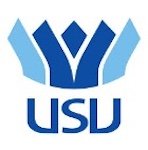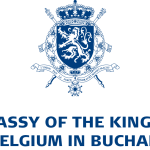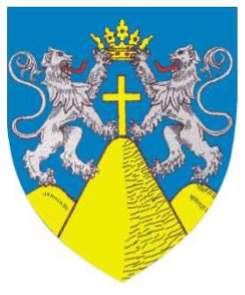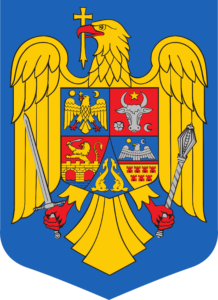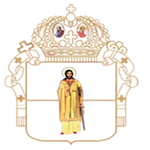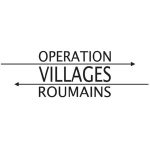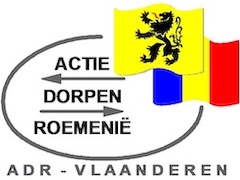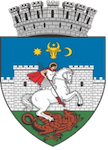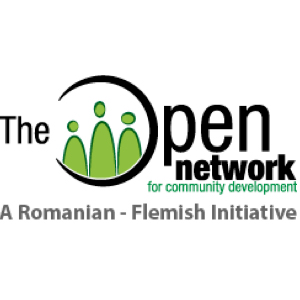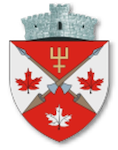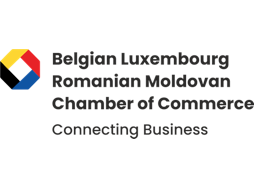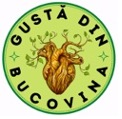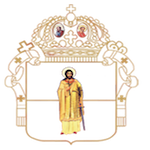Subjects of the workshops:
- Health
- Civil society
- Fire Safety
- Agriculture
- Social economy
| Workshop Health | |
| Time | November 6 2015, 13:30-15:00 and 15:30-17:00 |
| Venue | City Hall Iasi |
| Context | “Setting up a qualitative, accessible and affordable healthcare for everyone” Romania faces serious health problems that the healthcare system does not seem to be able to cope with. Poor health indicators such as high morbidity and mortality through tuberculosis, hepatitis B and C, cervical cancer, infant mortality, dramatically dropping of healthy life expectancy place Romania on the last places in Europe with regard to health showing the poor performance of its health system. In addition, citizens from rural communities are even more disadvantaged than those living in towns with regard to healthcare. They have less access to basic health services, lower insurance coverage and worse health outcomes than the ones living in urban areas. Health and social assistance services at grass roots level are in general severely underdeveloped. Doing nothing represents an enormous threat to the health of citizens in rural communities in general and to the chronic patients living in rural areas in particular. This will automatically lead to more expenses as well for the patients as for the state budget. |
| Moderator | Jozef Goebels |
| Reporter | Cristina Vladu |
| Speakers | |
| 13:30-14:00 | Presentation of the Slatina-Timis community health center case study by Ioan Suru, coordinator ADAM Slatina-Timis and Cristina Vladu, health expert The Open Network for community development. |
| 14:00-14:20 | Building up dental practices in rural areas by Alex Stoian, Dentist-Orthodontist, dental specialist The Open Network for community development. |
| 14:20-15:00 | Home care as a solution for affordable healthcare by Cristina Vasile White-Yellow Cross Buzau and representative of Caritas Romania |
| 15:00-15:30 | Coffee break |
| 15:30-15:55 | Organization of family doctors in Iasi |
| 15:55-16:30 | Integrated health provision by Vasile Cepoi, president National Authority of Management of Quality in Health |
| 16:30-17:00 | Master Plan Romanian Health care The Open Network for community development by Cristina Vladu, health expert TON |
| Workshop Civil Society | |
| Time | November 6 2015, 13:30-15:00 and 15:30-17:00 |
| Venue | City Hall Iasi |
| Context | “Strengthening local governance through intermediary structures” Last years all over Europe a tendency of a growing distrust in institutes, administrations and politics at all levels can be seen. At the same time there’s a strong demand for decentralization of competences. The decision-making process is going from central institutes to local groups. The principle of subsidiarity gains significance. In this context more and more intermediary structures are developing strategies to have a voice in the public debate. It’s clear that voting is an important aspect in public participation. But is it enough? Or how can (local) authorities stimulate the process from participation to civic engagement? In the spirit of decentralized cooperation existing and inspiring actions dealing with civic engagement through civil society organizations will be exchanged. The workshop will be the starting point to engage local government officials, civil society and informal groupings to facilitate a collaborative community planning process through a multi-stakeholder driven process. Presentations will discuss on the step by step approach from building up a community to influencing the community and finally influencing authorities. |
| Moderator | Cristina Chert |
| Reporter | Bart Wynants |
| Speakers | |
| 13:30-15:00 | – Cristina Chert, Setting the scene: The Open Network for community development – Focus on youth movement, youth work and youth policy planning – Ana Maria Bumbu and Raluca Mares, National Instructors AGLT – Daniel Coulon, president ASBL Jeunes en Roumanie, The role of Belgian scouts in the emergence of civic activities in Romanian villages – Anne Hachez from Mergem-Emmaüs Iasi : young people out of institutions |
| 15:00-15:30 | Coffee break |
| 15:30-17:00 | Focus on adult and elderly organizations – Ben Verstreyden, youth worker – Johny Bambust, collaborator Christian Workers Movement and Lecturer Artevelde High School, Gent – CARP Federation – OMENIA, presentation of organization |
| 17:00-18:00 | Visit to day center for elderly CARP Iasi |
| Workshop Social Economy | |
| Time | November 6 2015, 13:30-15:00 and 15:30-17:00 |
| Venue | Council of the Department of Iasi |
| Context | “Social investments through social economy” The central topic of this workshop is social economy, which is an important issue in Belgium, Romania and the European Union. Recently, legislative actions and (re)organization of the domain are taking place. In a time of budgetary austerity, social economy organizations play an important role in keeping the balance between economic and social investments. Social economy is made up of organizations whose economic activity stems from their primary goal to achieve social or societal objectives of general interest rather than generating profit. They are close to the people and aware of their needs, worries and hopes. Social economy has therefore a big potential for decentralized cooperation. A first exploratory meeting between actors from Belgium and Romania was organized in April 2015 by ADR/TON during the Belgian week in Bucharest. The outcome of this meeting was the question to organize a more in depth workshop during the Forum in order to develop common projects and actions. |
| Moderator | Esmeralda Vandenbosch |
| Reporter | Joris Quintens |
| Speakers | |
| 13:30-14:00 | Cristina Nichita, member of Romanian Parliament about the recent voted law on social economy. |
| 14:00-15:00 | Presentation project Inclusiv by research team of PROIS-NV and Babes-Bolyai University Cluj about labor market and human resources in Romania |
| 15:00-15:30 | Coffee break |
| 15:30-16:30 | Continuation project Inclusiv |
| 16:30-17:00 | Towards a structural social economy platform Romania Belgium |
| Workshop Rural Development | |
| Time | November 6 2015, 13:30-15:00 and 15:30-17:00 |
| Venue | Council of the Department of Iasi |
| Context | “Upgrading small rural initiatives” Romania counts around 3.9 million agricultural holdings, of which 74% around smaller than 2 ha and 18% between 2 and 5 ha. Around 70.4% of these farms have an income of less than 2.000 Euro a year. This self-sustaining agriculture doesn’t have to be seen as a threat for sufficient food supply. On the contrary: small scale farms have an important role in providing food to localities and wider families, ensure local employment, reduce the ecological food print and preserve traditional craftsmanship. The workshop would like to take the opportunity to upgrade the virtues of small scale agriculture trough the stimulation of decentralized projects dealing with social farming, care farming and rural tourism. In other words: rural development in the broad sense of the word. |
| Moderator | Michel De Backer and Vinciane Demoustier |
| Reporter | Jef Vanhoof |
| Speakers | |
| 13:30-14:00 | Presentation Water4Life project |
| 14:00-14:30 | Presentation project Delta 60 |
| 14:30-15:00 | Jérémie Guyon, Project collaborator River Dyle and Gette Pauline Ducarme, Project collaborator River Senne |
| 15:00-15:30 | Coffee break |
| 15:30-17:00 | Focus on Local Action Groups – Laura Albu, Executive President CMSC, founding member of LAG Stefan cel Mare – Didier Huygens, Province of East Flanders, reflections on communication with local farmers – Daniel Tabarcea, president of the association AGRO-ECO-VISCRI-WEISSKIRCH – Interventions by – Marie-Ange Hunt, president of OVR Ellezelles-Sic – Ioan Borlean, G.A.L. Mara Gutai, Maramures |
| Workshop Administrative Capacity Building | |
| Time | November 6 2015, 13:30-15:00 |
| Venue | Council of the Department of Iasi |
| Context | The workshop builds further on the conclusions of the plenary session on local administrative capacity building. General concepts will be translated in more concrete and practical working instruments. |
| Moderator | Patrick Van den Nieuwenhof |
| Reporter | Lucien Herrijgers, Alderman City of Lier (Belgium) |
| Speakers | |
| The group of the plenum about local and regional strategies will gather to further elaborate the general concepts (social mapping, community profiles, twinning 2.0): – UNCJR – VVSG – UVWC – AMR – ACOR – Parliament members Romania With interventions of: – Jean-Jacques Flahaux, Deputy Federal Parliament (Belgium) – Catherine Minon, president social house Estinnes |
|
| Fire Safety | |
| Time | November 6 2015, 15:30-17:00 |
| Venue | City Hall Iasi |
| Context | “Building on a permanent cooperation and training between volunteers and professionals” In Romania the professional firefighters (ISU) are still a military structure and situated in bigger cities. In the past, practically all villages had a voluntary firefighters corps (SVSU) as well. The past years lot of firefighting trucks and other firefighting materials have been sent to partner villages and cities in Romania from Belgium out. Some Belgian committees also looked to really set up or activate again the voluntary fire brigades locally. The main idea is to get a good cooperation between ISU and SVSU and a common training lead by ISU. Doing that way, SVSU can be an ideal satellite post for ISU locally in order to start action immediately after alarming. There is a big willingness to further support such cooperation as well with exchange of trainings between Belgium and Romania as with additional interesting materials and utilities. Moreover a twinning between Belgian and Romanian firefighters can be set up. Also preventive actions locally as smoke detectors, evacuation plans schools, etc. should be set up as well as cooperation between firefighters and health centers. |
| Moderator | Francisc Giurgiu |
| Reporter | Paul Helsen |
| Speakers | |
| 15:30-16:00 | Speech by Raed Arafat, Subsecretary of State Department for Emergency Situations |
| 16:00-17:00 | Paul Helsen, Towards an Erasmus+ project ‘Train the Trainer’ Francisc Giurgiu, Swiss project: support for voluntary firefighters Marius Gatej, Major Operational Center Bucharest, The structure of the Romanian Fire Safety Organization |




